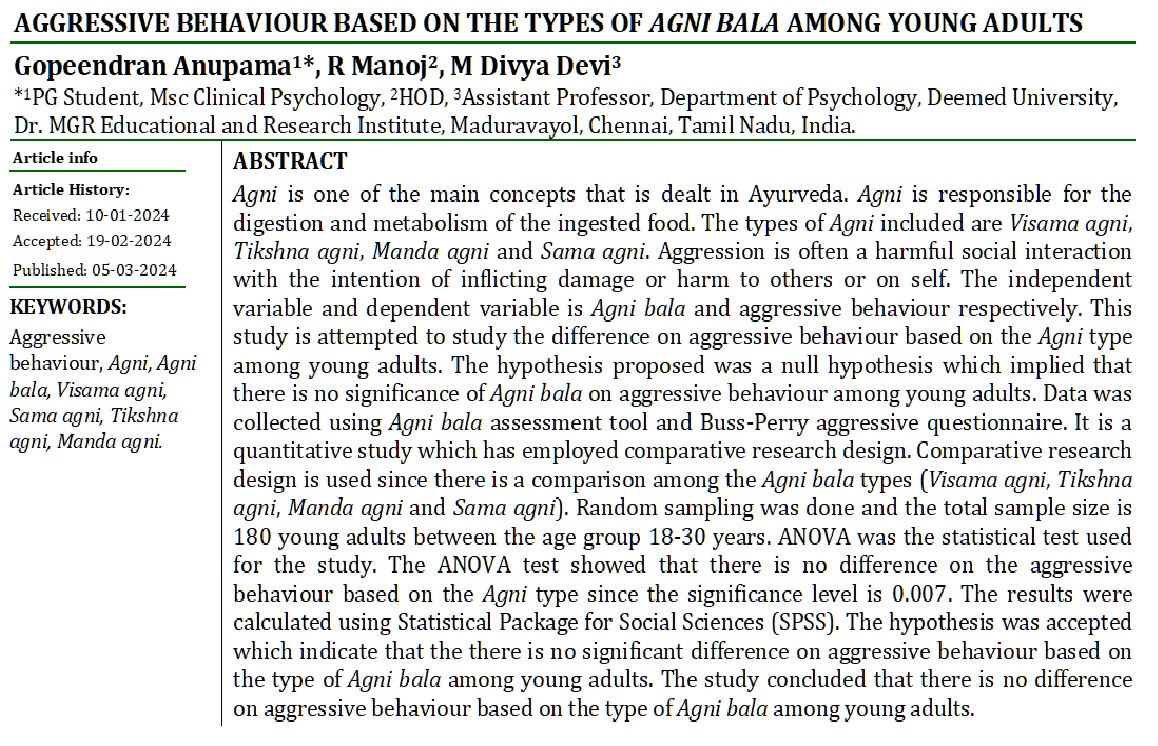Aggressive Behaviour Based on the Types of Agni Bala Among Young Adults
Abstract
Agni is one of the main concepts that are dealt in Ayurveda. Agni is responsible for the digestion and metabolism of the ingested food. The types of Agni included are Visama agni, Tikshna agni, Manda agni and Sama agni. Aggression is often a harmful social interaction with the intention of inflicting damage or harm to others or on self. The independent variable and dependent variable is Agni bala and aggressive behaviour respectively. This study is attempted to study the difference on aggressive behaviour based on the Agni type among young adults. The hypothesis proposed was a null hypothesis which implied that there is no significance of Agni bala on aggressive behaviour among young adults. Data was collected using Agni bala assessment tool and Buss-Perry aggressive questionnaire. It is a quantitative study which has employed comparative research design. Comparative research design is used since there is a comparison among the Agni bala types (Visama agni, Tikshna agni, Manda agni and Sama agni). Random sampling was done and the total sample size is 180 young adults between the age group 18-30 years. ANOVA was the statistical test used for the study. The ANOVA test showed that there is no difference on the aggressive behaviour based on the Agni type since the significance level is 0.007. The results were calculated using Statistical Package for Social Sciences (SPSS). The hypothesis was accepted which indicate that the there is no significant difference on aggressive behaviour based on the type of Agni bala among young adults. The study concluded that there is no difference on aggressive behaviour based on the type of Agni bala among young adults.
Downloads

Copyright (c) 2024 International Journal of Ayurveda and Pharma Research

This work is licensed under a Creative Commons Attribution-NonCommercial-ShareAlike 4.0 International License.






